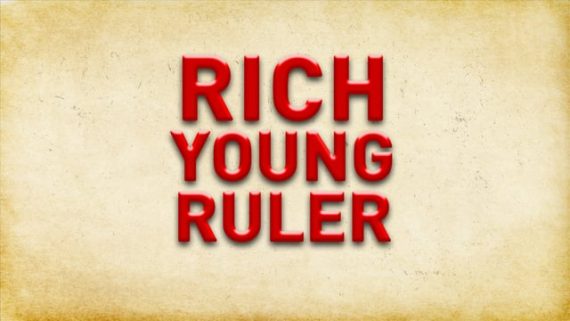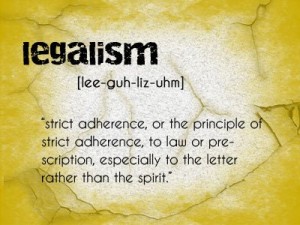Money! Money! Money! It’s the money episode! In this podcast study, I talk about cryptocurrency, a reader email about tithing, and the story of the Rich Young Ruler in Matthew 19:16-24. We see that Jesus was NOT telling the young man that he had to give up all his money in order to go to heaven. The story is about something else entirely.
Cryptocurrency like Bitcoin and Dogecoin are in the News!
 Have you heard of cryptocurrency? They’re in the news a lot this week, so I decided to talk a a bit about them. I explain what they are, why they’re important and gainin widespread acceptance, and how to get some if you want. Ten years ago, Bitcoin was $1. It hit $48,000 today. Dogecoin is the most entertaining cryptocurrency, which causes many to believe it will be the most successful. It currently sits at $.07, and many believe it will hit $1 this year. Where will it be in ten years?
Have you heard of cryptocurrency? They’re in the news a lot this week, so I decided to talk a a bit about them. I explain what they are, why they’re important and gainin widespread acceptance, and how to get some if you want. Ten years ago, Bitcoin was $1. It hit $48,000 today. Dogecoin is the most entertaining cryptocurrency, which causes many to believe it will be the most successful. It currently sits at $.07, and many believe it will hit $1 this year. Where will it be in ten years?
I personally bought a tiny fraction of one Bitcoin and several hundred Dogecoins this past week.
Best and easiest is Coinbase. Use my link to get $10 of free Bitcoin if you buy at least $100. That’s 10% instant profit though, so you might as well take it.
But Coinbase doesn’t sell Dogecoin. So if you want Dogecoin, use Robinhood. Use that Robinhood link to get a free stock when you sign up.
Reader Email about Tithing
A reader sent me a question about tithing this week. He wanted to know if he is really supposed to tithe 10% to his church or not.
 I have written a lot about this before. There’s a whole section on tithing in my book (#AmazonAdLink) Church is More than Bodies, Bucks, & Bricks. Here are some links on my site you can read as well:
I have written a lot about this before. There’s a whole section on tithing in my book (#AmazonAdLink) Church is More than Bodies, Bucks, & Bricks. Here are some links on my site you can read as well:
- The Tithing Tax
- Malachi 3 and Tithing
- Modern Tithing
- Tithe for Your Right to Party
- Tithe 3% to your church
- What Jesus taught about Tithing
- Render To Caesar
- The Widow’s Mite
- Devouring Widow’s Houses
- Don’t Tithe to a Decaying Temple
The bottom line truth about tithing is that most of what we have been taught in our churches about tithing is flat-out wrong. In the Bible, tithing is closer to what you and I would think of as income tax. But even then, the tithe went to help local people, rather than to nameless and faceless governmental programs. Most surprisingly of all, that 10% tithe we so often hear about from our pulpits was primarily for the purpose of hosting a large community party for everyone who came. It was to help pay for everybody to come together once a year for a giant music, arts, and food festival.
There’s a lot more to it than that, but there is nothing in Scripture to support the practice we have today of paying 10% of your annual income to cover the costs of an expensive church building and staff salaries. This doesn’t mean you can’t have buildings and church staff. You can. But what you cannot do is defend the practice from the Bible.
Anyway, the bottom line answer to the question is this: “No, the Bible does not command us to give 10% of our income to the local church.” It is smart to use some of your money to support people, ministries, and causes that you believe in, and to help the poor and needy in your community, but also make sure you are using some of your money to make memories with your spouse and children, and to also enjoy life a bit.
Read some of the articles linked to above (or just get the book) to learn more about what the Bible teaches about tithing.

The Rich Young Ruler in Matthew 19:16-24
I have previously taught about the Rich Young Ruler here and here.
The passages of Matthew 19:16-24, Mark 10:17-31, and Luke 18:18-30 all tell the account of a rich, young ruler coming to Jesus to ask how he can have eternal life. Jesus tells him to give all his wealth away, and then come follow Jesus. The young man went away sorrowful, because he was very rich. After his departure, Jesus and His disciples have a discussion about wealth and the kingdom of heaven.
This is a confusing text for many Christians because many people think that the term “kingdom of heaven” refers to heaven itself. And so many believe that when Jesus taught about how difficult it is for a rich man to enter the kingdom of heaven, He was saying that it is difficult for the rich to receive eternal life and go to heaven when they die.
Thus, it is taught, the rich must give away their wealth in order to have a chance at eternal life.
But this is a works-based message of eternal life and is completely contrary to the free offer of eternal life found everywhere in Scripture.
If eternal life is freely given to anyone and everyone who simply and only believes in Jesus for it, it would be a biblical contradiction for Jesus to also say that the rich must give away their wealth to receive eternal life.
Thankfully, a proper understanding of the concept of the kingdom of heaven helps explain this apparent contradiction. When Jesus teaches about the dangers of wealth, He is not referring to the difficulty the rich will have in receiving eternal life, but to the difficulty they will have in experiencing the rule and reign of God in their life here and now on this earth.
The Kingdom of God is about the Rule and Reign of God in our life NOW
 The context of these passages provides numerous lines of evidence to show that Jesus is talking about experiencing eternal life in our present life through the rule and reign of God, rather than about how to receive eternal life and go to heaven when we die.
The context of these passages provides numerous lines of evidence to show that Jesus is talking about experiencing eternal life in our present life through the rule and reign of God, rather than about how to receive eternal life and go to heaven when we die.
For example, other than the initial question by the rich, young ruler in Matthew 19:16, the rest of the passage is about inheriting eternal life, following Jesus on the path of discipleship, and entering the kingdom of heaven. So despite how the rich, young ruler phrased his initial question, Jesus answer a more important question for this particular person.
The Gospel authors understood this, and so the parallel versions in Mark 10:17-31 and Luke 18:18-30 have the rich young ruler have the rich, young ruler asking how to “inherit” eternal life. Furthermore, Jesus later clarifies in Matthew 19:29 that He is only talking about inheriting eternal life (which refers to the present age experience of eternal life), Mark and Luke use the word inherit for consistency’s sake when they record the question from the rich young ruler (Mark 10:17; Luke 18:18).
Now which question did the rich, young ruler originally ask? It is difficult to say. Probably he spoke in Hebrew or Aramaic, and so Matthew translated the man’s word one way while Mark and Luke translated it another. But regardless of what was in the mind of the rich, young ruler, however, Jesus answered his question in a way that reached to the heart of the issue, and the heart of the young man.
Wealth in Jewish society
In Jewish society, wealth was a sign of God’s divine blessing. Due to various promises in the Hebrew Scriptures, it was assumed that if a person was observing the law and was wealthy, God had blessed them with their wealth because of how successful they were in observing the law. This belief would obviously not apply to someone like Zacchaeus, who was clearly making no effort to observe the law, but would absolutely apply to someone like this young ruler.
He believed that he had observed the entire law since his youth (Matt 19:20), and everyone else believed it also (cf. Matthew 19:25).
When Jesus instructed the rich, young ruler to give away all his wealth and then come follow Him, Jesus was challenging this entire way of thinking about the connection between God’s law and human wealth. Jesus was showing that there is no true connection between the two. Wealth is not an outward sign of inner righteousness.
Jesus wanted to show this young man, as well as the disciples, how to truly live in righteousness, which comes through following Jesus in discipleship and living in light of the kingdom of God. But Jesus cannot do this as long as a person is looking to their own ability to be righteous, or to their own wealth as a sign of personal righteousness. So he tells the young man to discard all evidence or thought of personal righteousness and then come follow Him to see what righteous living truly looked like. But the young man went away because he was unwilling to do this.
The Kingdom of God is Entered Through Discipleship
So the answer from Jesus is not about how to receive, gain, or have eternal life, but how to inherit or experience God’s will, purpose, and blessings for our life here and now on this earth. As we follow Jesus on the path of discipleship in this life we will experience the life God wants for us now and also gain treasure for our future life in eternity (Mark 10:21: Luke 18:22).
 All of this is about entering into the kingdom of God (Mark 10:23-25; Luke 18:24-25), which is shorthand for entering into the experience of the rule and reign of God in our lives here and now on this earth.
All of this is about entering into the kingdom of God (Mark 10:23-25; Luke 18:24-25), which is shorthand for entering into the experience of the rule and reign of God in our lives here and now on this earth.
But what about the word “saved”?
Note that the disciples use the word “saved” (Mark 10:26; Luke 18:26), which also causes confusion in the minds of some. But when we recognize that the word “saved” also does not refer to receiving eternal life or going to heaven when we die, then the passage retains its message. Jesus is talking about being delivered and rescued from the problems that wealth brings, so that His followers can experience the rule and reign of God in their life now.
The surrounding context makes it clear that Jesus and the disciples are talking about discipleship and eternal reward rather than justification and receiving eternal life (Mark 10:28-30; Luke 18:28-29).
What Jesus Might Say to Us Today
In modern, Western culture, while some people see wealth as a sign of God’s blessing on a person who is fully obedient to Him, this is not a widely held view. If Jesus were physically walking the earth today, I can imagine a scenario in which a well-known, young pastor comes to Jesus and says, “Good teacher, what must I do to experience God’s life?” The young pastor only asks this because he thinks he is already experiencing God’s life, and believes Jesus will praise Him for his great success at such a young age.
Instead, Jesus says, “Well, what is it that you teach from your pulpit and write about in your books?”
The young pastor would respond, “People must attend church regularly, tithe 10% of their income, read the Bible and pray every day, and not be given to alcohol or drugs. They should also be a good witness at their job by wearing Christian t-shirts, a cross-shaped necklace, and never laugh at crude jokes. Instead, they must hand out Gospel tracts and invite people to church.”
Jesus would respond, “Okay. Go do all of that then.”
To which the young man would proudly boast, “I’ve done all this since I was a kid.”
 “Well done!” Jesus would say. “Only one thing is left. Resign as pastor. Stop selling books. Quit preaching. Throw out all your gospel tracts and Christian clothes. Stop tithing to the church. Put your Bible on a shelf for a while, and go have a beer at the local pub. Then come follow Me and we’ll see what’s next.” But the young pastor would go away, thinking that Jesus was a false teacher, for the young man had it all figured out.
“Well done!” Jesus would say. “Only one thing is left. Resign as pastor. Stop selling books. Quit preaching. Throw out all your gospel tracts and Christian clothes. Stop tithing to the church. Put your Bible on a shelf for a while, and go have a beer at the local pub. Then come follow Me and we’ll see what’s next.” But the young pastor would go away, thinking that Jesus was a false teacher, for the young man had it all figured out.
In this text, Jesus is showing that there is no such thing as an outward manifestation of inward righteousness. However, if we want to truly experience the life of God in us, and all the riches and blessings that entails, we can stop following religion and instead follow Jesus into a life of discipleship. While Jesus always leads in surprising directions, but also leads us toward a true life with God.
Matthew 19:16-24 therefore, is not about how to receive eternal life, but about how to get rid of the things in our life that we rely on as evidence that we are “good” Christians, and instead just follow Jesus wherever He leads. What things do you look to for proof that God loves and accepts you? That you are doing a “good job” for Jesus? Get rid of such things, and then come to Jesus empty-handed, saying, “Wherever You lead, I’ll follow.”
When you do this, Jesus will lead you into a full experience of the kingdom of God.



 In this interview with Lucas Kitchen, we discuss questions like this:
In this interview with Lucas Kitchen, we discuss questions like this:

 In fact, demons probably know more about God than we do. Demons probably have better theology than many Christians. That is, demons probably believe more accurate truths about God than many Christians do.
In fact, demons probably know more about God than we do. Demons probably have better theology than many Christians. That is, demons probably believe more accurate truths about God than many Christians do. And he uses a particular event in the life of Abraham to prove that Abraham’s faith led him to obey God and perform certain actions, which in turn, allowed people to recognize that Abraham was truly God’s friend.
And he uses a particular event in the life of Abraham to prove that Abraham’s faith led him to obey God and perform certain actions, which in turn, allowed people to recognize that Abraham was truly God’s friend.

 Just as legalism breeds disunity, love and unity flourish where grace and faith multiply. The more we emphasize grace and faith, the greater our unity will be. For this reason—and simply for the sake of the truth—a strong stance on the simplicity and freeness of eternal life by grace alone through faith alone is essential.
Just as legalism breeds disunity, love and unity flourish where grace and faith multiply. The more we emphasize grace and faith, the greater our unity will be. For this reason—and simply for the sake of the truth—a strong stance on the simplicity and freeness of eternal life by grace alone through faith alone is essential. At it’s core, legalism believes that God is angry with humanity, and that the way to make God like us again is to obey His laws. And if everybody could just obey God’s laws all at the same time, then God might love us and be happy with us again, and blessings from heaven will flow down upon us once more.
At it’s core, legalism believes that God is angry with humanity, and that the way to make God like us again is to obey His laws. And if everybody could just obey God’s laws all at the same time, then God might love us and be happy with us again, and blessings from heaven will flow down upon us once more. Since nobody believes that they are legalistic, everybody believes they have a healthy balance between law and grace, between faith and good works. A legalist then, is anyone who places a greater emphasis on law and good works than you do. On the opposite end of the spectrum, we criticize those who take grace too far. Those people are licentious, we think. They place too much emphasis on grace and in so doing, give people license to sin.
Since nobody believes that they are legalistic, everybody believes they have a healthy balance between law and grace, between faith and good works. A legalist then, is anyone who places a greater emphasis on law and good works than you do. On the opposite end of the spectrum, we criticize those who take grace too far. Those people are licentious, we think. They place too much emphasis on grace and in so doing, give people license to sin. How? Most people try to combat legalism with a different form of legalism. I have seen arguments break out between a behavioral legalist and a doctrinal legalist. The first person thinks we make God happy by what we do, while the second person argues that we make God happy by what we believe.
How? Most people try to combat legalism with a different form of legalism. I have seen arguments break out between a behavioral legalist and a doctrinal legalist. The first person thinks we make God happy by what we do, while the second person argues that we make God happy by what we believe. But there are numerous considerations from the text which reveal that this is not what Jesus is saying, and this is not how we should understand the passage.
But there are numerous considerations from the text which reveal that this is not what Jesus is saying, and this is not how we should understand the passage.
 Jesus sought to reverse this entire line of thought, as the following contexts make quite clear (Matthew 19:23-30; Mark 10:23-30; Luke 18:24-30). It is difficult for the rich to enter the Kingdom of heaven because they rely on their riches as evidence that they are already living the life God wants for them.
Jesus sought to reverse this entire line of thought, as the following contexts make quite clear (Matthew 19:23-30; Mark 10:23-30; Luke 18:24-30). It is difficult for the rich to enter the Kingdom of heaven because they rely on their riches as evidence that they are already living the life God wants for them.